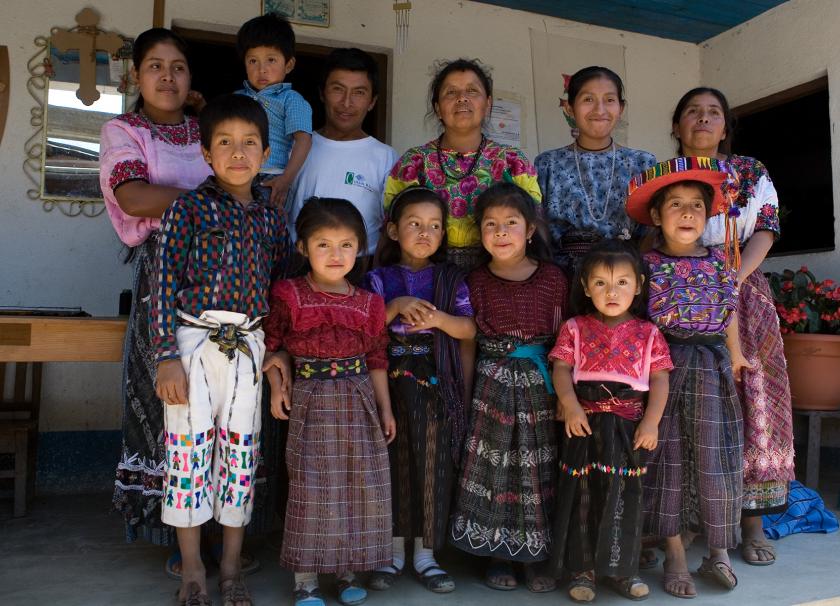
Meet Pachamama Coffee Cooperative
By Lauren Taber, Pachamama Coffee Cooperative
Pachamama Coffee Cooperative started in 2001 with a few simple questions in mind: what would it look like to take Fair Trade a step further? How can coffee farmers be in direct relationship with end consumers in the United States?
We found that the answer was even simpler: cooperative ownership. Pachamama Coffee has been 100% farmer-owned since day one, and is currently owned by 140,000 small scale family farmers across the coffee producing regions of the world.
When farmers stand behind the farming, roasting, marketing, and distribution of the coffee they bring to us, they maintain control of their destiny. On average, our customers paid almost $12 per pound to coffee farmers in 2017 — that’s 6 times more than the Fair Trade minimum price.
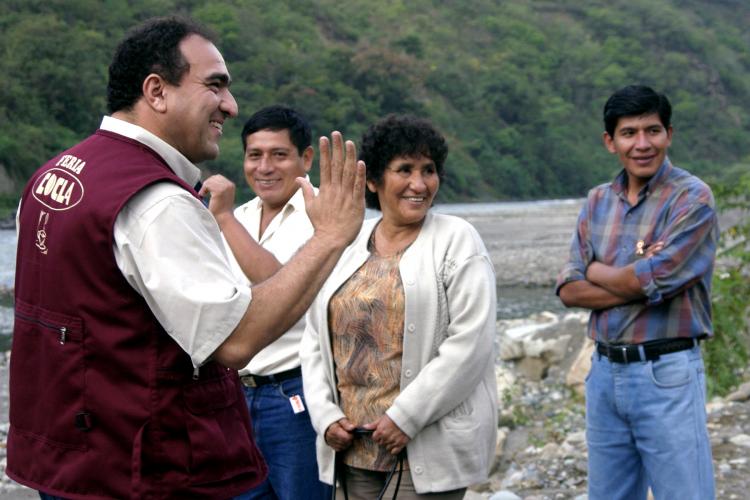
As a function of our cooperative structure, Pachamama is also democratically controlled by farmers - our Board of Directors is comprised of representatives from our member cooperatives in Nicaragua, Peru, Ethiopia, Mexico, and Guatemala. This gives coffee producers complete control of every step of the supply chain - from farming and roasting, to decisions about packaging and cafe operations. This novel iteration of vertical integration gives a fresh take on how to ensure equity in an industry that relies completely on peoples and nations that have historically been denied any form of clout.
“For us, Pachamama Coffee Cooperative represents our dreams of serving you our best coffee, freshly-roasted in the United States,” shares Merling Preza, the President of our Board of Directors and representative of PRODECOOP in Nicaragua. “When we started with Fair Trade 25 years ago, it was our ultimate dream to roast and brand our coffee, selling it as a value-added product. For our small farmers, the Pachamama model is an evolution born from necessity and a strong determination to stay on the farm.”
More than that, explains Merling, it is an investment that the farmers are empowered to make in their own future. When farmers own the company, they are not under the pressure of a volatile green coffee price index, and are therefore empowered to produce coffee with more care. 100% of the coffee Pachamama roasts is organic and shade grown, which means that we are not only socially sustainable, but environmentally just as well.
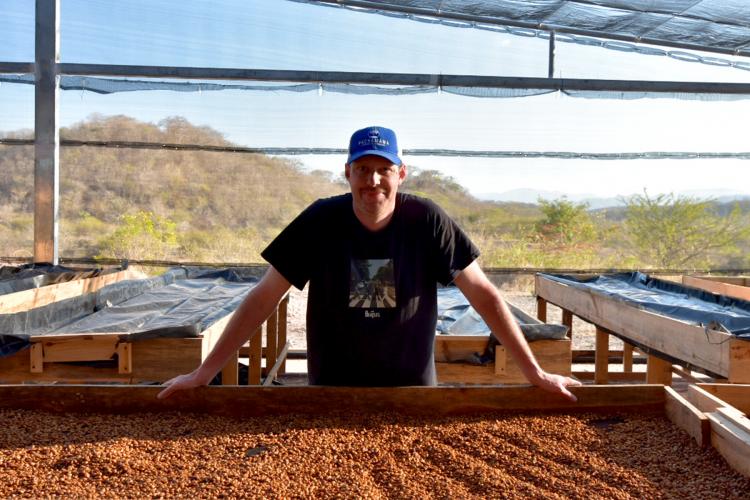
We are honored to operate our business guided by the 7 Cooperative Principles, which we view in the context of prioritizing producers. At every step, we seek to build them up and acquaint our customers with the farmers that are responsible for bringing them world class coffee. Being a co-op makes this possible - we are able to showcase our producer representatives in the boardroom, and tell the stories of the farmers that control the equity of our operations. We believe that, in order to bridge the gap between farmers and consumers in the coffee supply chain, a cooperative approach is necessary.
Pachamama has experienced steady growth since its inception. We now have in-house roasting and wholesale and retail distribution operations at our Midtown Sacramento location, in addition to two coffeebars in Sacramento and a weekly presence at the Farmer’s Market in Davis, CA. Our farmer-owners continue to provide organic coffee whose quality is recognized not only by excellent organizations such as the Good Food Awards, but by daily consumers across the U.S. as well.
More Co-op News
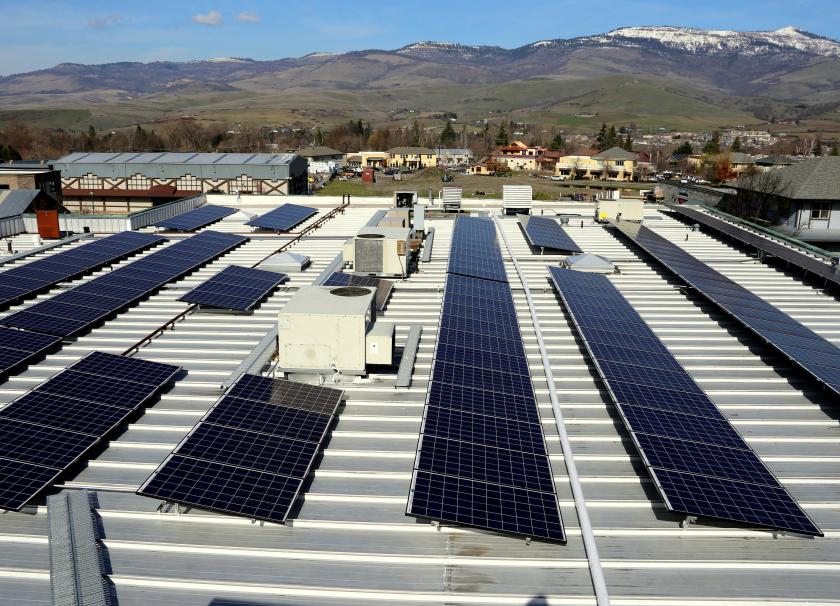
On the Road to Sustainability
By Laura Pfister, Media Coordinator
Forty six years ago, a group of families formed a buying club to access sustainable, local organic food as an alternative to modern industrial agriculture. This humble foundation of social and environmental responsibility started the Ashland Food Co-op and has shaped every decision we’ve ever made. It’s how, over four decades later, that a small buying club became a 30 million dollar, 17,500 square foot Certified Organic Retailer diverting 82% of their discards from the landfill.
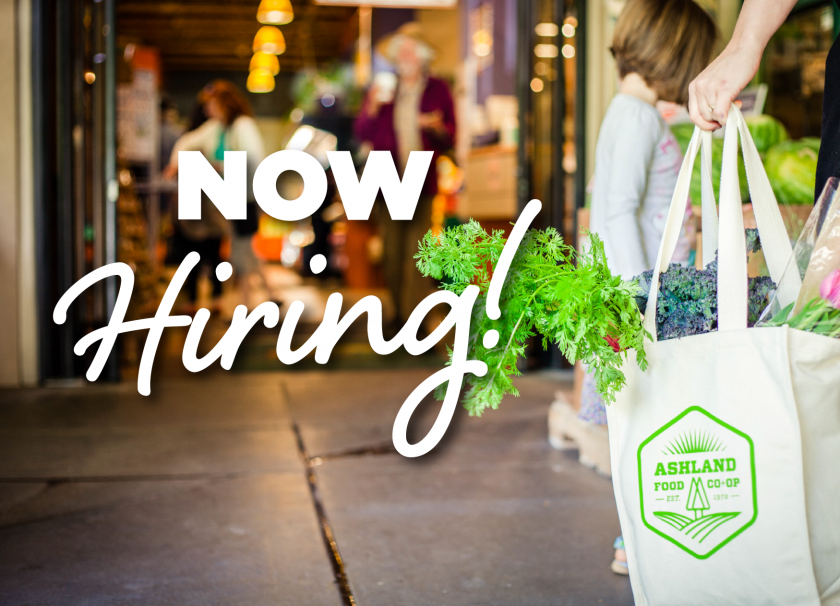
Staff Picks: Earth Friendly Products
In celebration of Sustainability Month in April, we asked our Sustainability Committee to share their favorite eco-friendly product.

2018 Kids Summer Camps
We’ve teamed up with Rogue Valley Farm to School to offer three different camps this summer. Each week campers will dive into food production, preparation and exploration, with a mix of farm and kitchen experiences that delight the senses and inspire the soul. Join Rogue Valley Farm to School staff as they cultivate the ability to grow and cook delicious, healthy, seasonal meals. Monday - Wednesday at the Co-op Community Classroom, Thursday & Friday at the Farm at SOU.
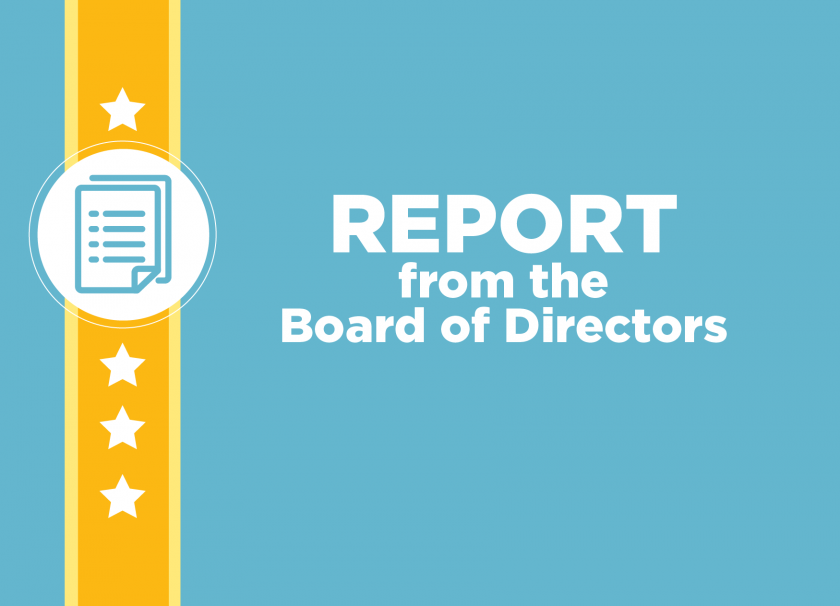
Update on our Strategic Initiatives
By Ed Claassen, Board President
Your Board and Management Team invested a significant amount of time in 2014 developing a set of strategic initiatives that we believe are vital in shaping the future of our business and furthering our mission. We formed a Strategic Planning Steering Committee consisting of 3 Board members and 3 Management Team members to guide the implementation of these initiatives.
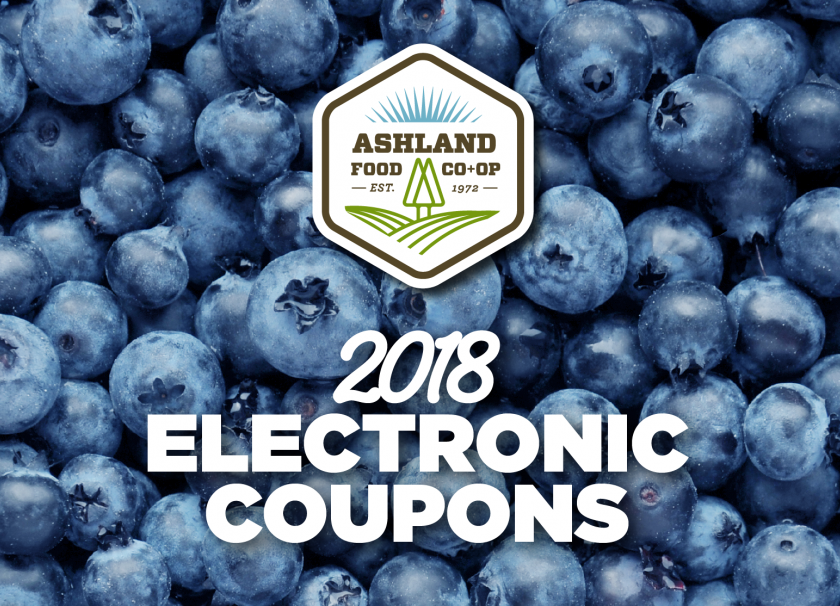
2018 Electronic Coupon Schedule
To further our sustainability efforts and to serve you better, we began offering Electronic Owner Coupons in January 2017 at the register.
No more forgetting to bring your owner coupons. No more waiting for your newsletter to arrive. Cashiers simply ask if you want to use your owner coupons when you check out.
As we enter our second year of Electronic Coupons we wanted to share a couple of friendly reminders and the 2018 month by month schedule.
Please note:
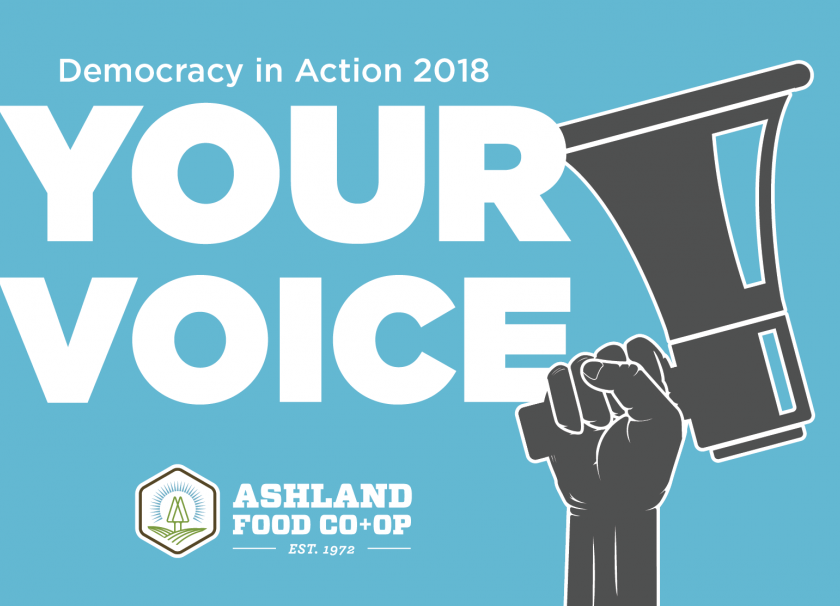
What Does Democracy Have to Do with Cooperatives?
By Annie Hoy, Marketing Manager
We often refer to cooperatives as “democratic enterprises.” But what does that really mean? The Ashland Food Co-op, like all other co-ops in most economic sectors, is owned and controlled by the people who use its services.
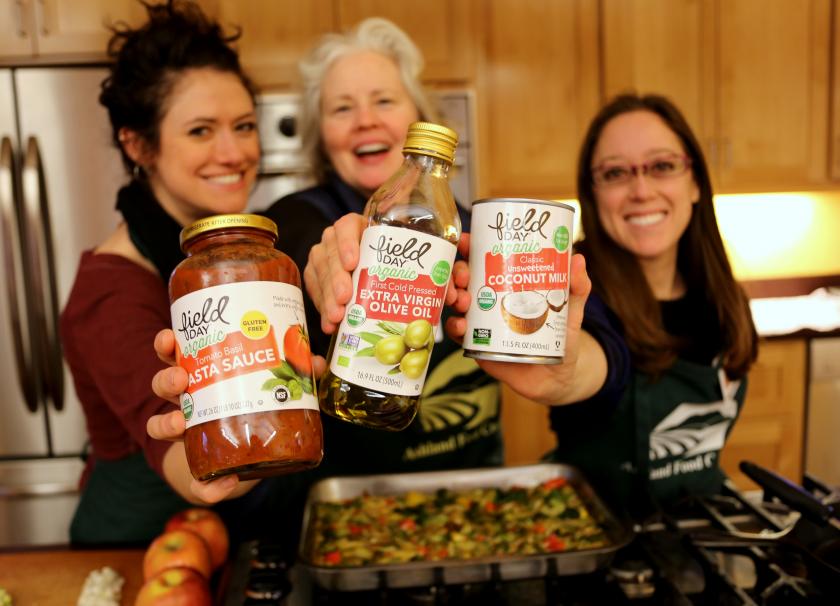
Co+op Basics: High Integrity, Low Price
Looking to stretch your grocery budget? So are we! We've lowered the price on over three hundred items to create a set of high integrity staples for every shopper. Welcome to Co+op Basics.
Co+op Basics includes over 300 pantry and household staples. From beef to milk to cereal, we’ve lowered the margin and price on all those items to make organic, healthy food accessible to every shopper.
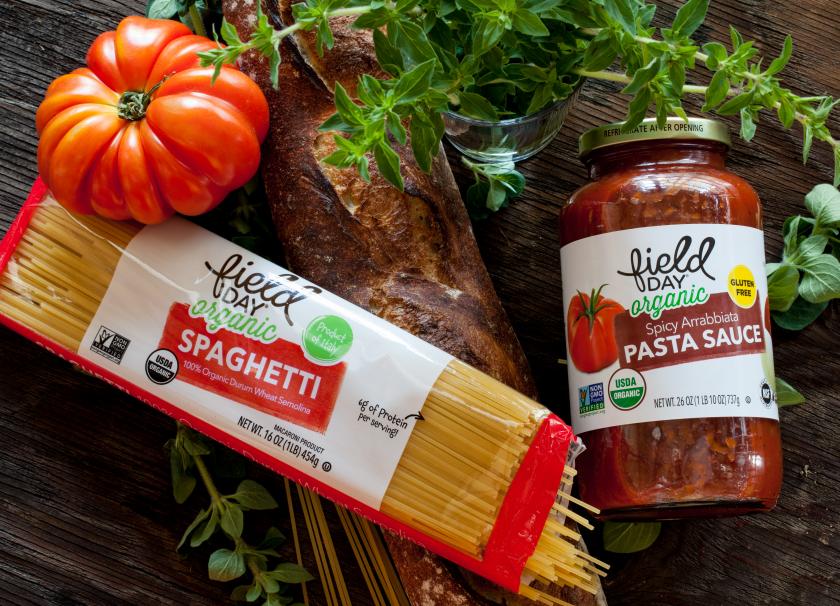
Co+op Basics Staff Favorites
After the holidays, we usually find our pocket books a little lighter. Here are a few favorite Co+op Basics items our staff turn to when the money is a little tighter.
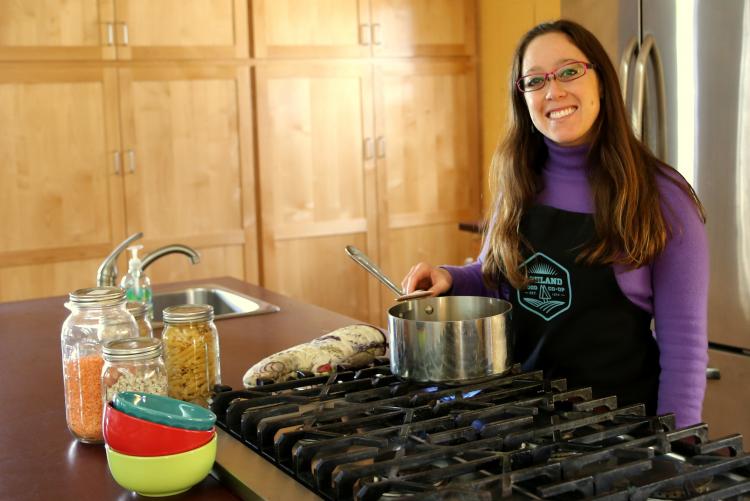
Proposals Sought for the 2018 Community Grants
The funding cycle for the 2018 Co-op Community Grants for nonprofit organizations is now open.
Every spring, for more than 20 years, we’ve been donating to area nonprofits through our Community Grant program. We are committed to creating healthy, sustainable communities and this program helps us fulfill that commitment by supporting the amazing work of local nonprofits. The Community Grant program is also the highlight of Cooperative Principle 7, Concern for Community, and is something we take to heart.
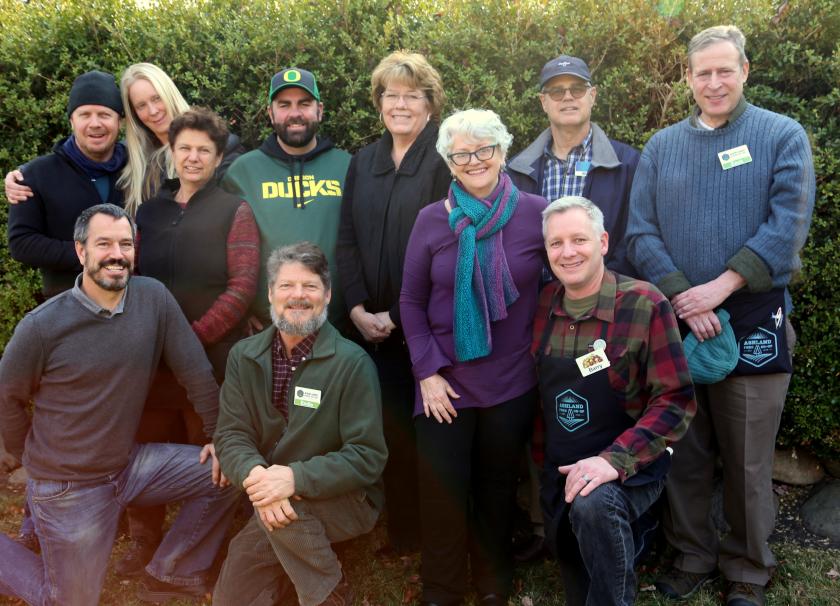
From the General Manager’s Desk
By Emile Amarotico
As we commence our lap around the sun in 2018, I wish to recognize the longstanding contributions of an amazing group of professionals. We are blessed with the dedication of eleven department managers expertly coordinating the daily flow of people, products and services that breath life into our Co-op!
-
Lynne (35+ years’ tenure) our Grocery Manager oversees keeping the aisles abundant with shelf stable products and coolers full of fresh perishables.
The Role of the Board in Co-op Governance
By Gwyneth Bowman, Vice President
After serving on the AFC Board for fourteen years my passion for the Co-op model has strengthened my commitment to the Cooperative Principles and Values. Of special importance is how we work together as a governing body with one voice. We are the ultimate decision-makers of our Co-op and hold a trusteeship for the benefit of our owners and community.
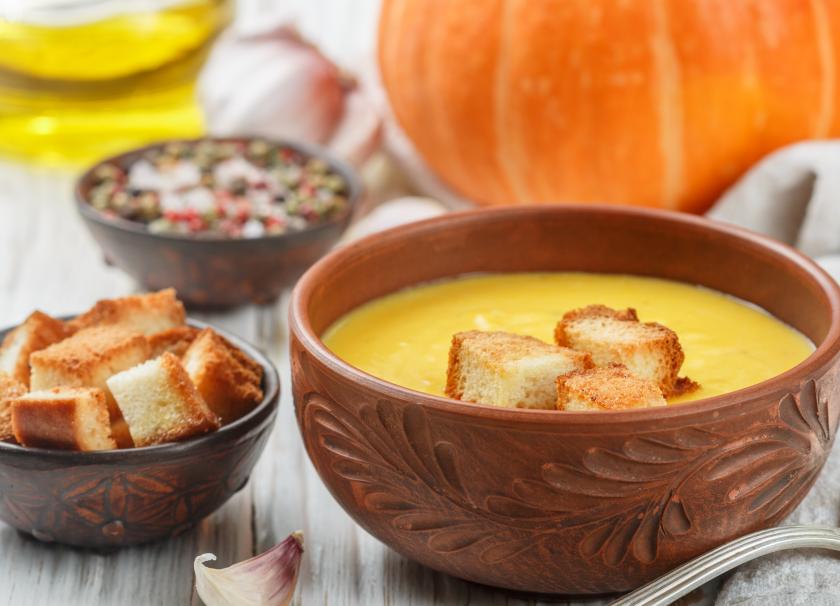
Fall Favorites from the Co-op
Like it or not, the cool weather has arrived. Whether you are heading out for a hike or enjoying a good book by the fire, the Co-op Deli has what you need to fuel your favorite fall activity. Stay warm with these comfort food recommendations from the Co-op Deli.
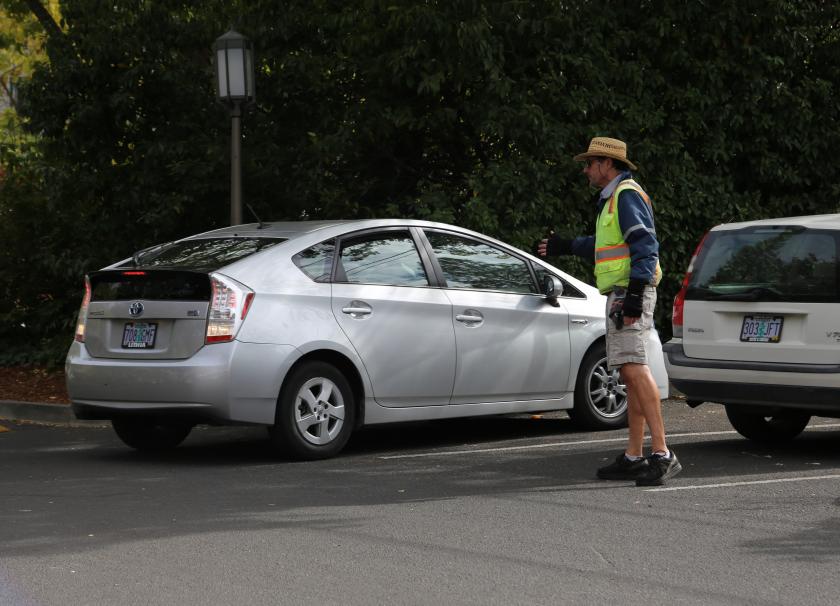
From the General Manager's Desk
By Emile Amarotico
A recent visitor commented that our parking is totally inadequate to our business volume. What’s true is that we cannot create more parking due to space and municipal code constraints. Thus, the value of each available space is increasing over time. Assuming only half of Co-op shoppers use automobile parking, each space supports at least $200,000 in annual sales.

Meet Board of Director Julie O'Dwyer
When not working on Board of Director efforts, my profession is an Interior and Building Designer. I own the Ashland Design Studio, located in the Historic Railroad District, and have a design services studio there - JulieO Design. I have been in the architectural design business my whole life; from crawling around my father's architectural studio to traveling around the world working on buildings large and small to now having created my own niche in the local building community. I took a few years off this path to own and run Tease Restaurant here in Ashland.
